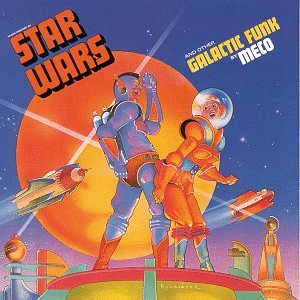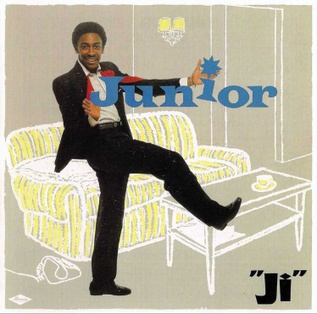
KC and the Sunshine Band is an American disco and funk band that was founded in 1973 in Hialeah, Florida. Their best-known songs include the hits "Get Down Tonight", "That's the Way ", "(Shake, Shake, Shake) Shake Your Booty", "I'm Your Boogie Man", "Keep It Comin' Love", "Boogie Shoes", "Please Don't Go", and "Give It Up". The band took its name from lead vocalist Harry Wayne Casey's last name ('KC') and the 'Sunshine Band' from KC's home state of Florida, the Sunshine State. The group had five number-one singles on the Billboard Hot 100 chart in the 1970s.

Katrina and the Waves were a British rock band formed in Cambridge in 1981, widely known for their 1985 hit "Walking on Sunshine". They won the 1997 Eurovision Song Contest with the song "Love Shine a Light".

Dirty Mind is the third studio album by the American singer-songwriter and musician Prince. It was released on October 8, 1980, by Warner Bros. Records.

Roy Ayers is an American vibraphonist, record producer and composer. Ayers began his career as a post-bop jazz artist, releasing several albums with Atlantic Records, before his tenure at Polydor Records beginning in the 1970s, during which he helped pioneer jazz-funk. He is a key figure in the acid jazz movement, and has been described as "The Godfather of Neo Soul". He is best known for his compositions "Everybody Loves the Sunshine", "Lifeline", and "No Stranger To Love" and others that charted in the 1970s. At one time Ayers was listed among the performers whose music was most often sampled by rappers.
Brit funk is a musical style that has its origins in the British music scene of the late 1970s and which remained popular into the 1980s. It mixes elements from jazz, funk, soul, urban dance rhythms and pop hooks. The scene originated in southern England and spread with support from DJs including DJ Froggy, Greg Edwards, Robbie Vincent, Chris Hill and Colin Curtis. Major funk acts included Jimmy James and the Vagabonds, Average White Band, Ian Dury & the Blockheads, Carl Douglas, Hot Chocolate, the Delegation, Hi-Tension, Light of the World, Level 42, Central Line, the Pasadenas, Beggar and Co and Soul II Soul. The genre also influenced 1980s new wave/pop groups such as Culture Club, Bow Wow Wow, Pigbag, Dexys Midnight Runners and Haircut 100.
Enchantment is a soul/R&B band formed in Detroit, Michigan by Emanuel "EJ" Johnson, Joe "Jobie" Thomas, Bobby Green, Edgar "Mickey" Clanton, and David Banks. They are best known for their mid-1970s hits "Gloria", "Sunshine" and "It's You That I Need".

Star Wars and Other Galactic Funk is the debut studio album of American musician Meco that was released through Millennium Records in summer 1977. Meco, who had a steady career as a session musician and producer, was an avid science fiction fan. Upon watching Star Wars (1977), he conceived the idea of re-working its score; he later had a meeting with Neil Bogart of Casablanca Records who approved the project. By June 1977, Meco was working with Tony Bongiovi and Harold Wheeler, recording at MZH Studio, New York City, for three weeks. Star Wars and Other Galactic Funk is a disco and jazz fusion album that consists of two medleys; "Star Wars" consists of nine sections and recreates sounds from the movie and "Other Galactic Funk" is made up of three sections.

Walking on Sunshine is the third studio album by Guyanese-British musician Eddy Grant, originally released in 1978 by Ice Records. Recorded at Grant's Stamford Hill recording studio, the album was the follow-up to Message Man (1977) and fuses styles of Caribbean music like reggae, soca and calypso with other genres, including funk and pop. The musician played most of the album's instrumentation himself, and described the record as reflecting his joyousness. However, some songs feature tough cultural themes, particularly those on the first side.

Central Heating is the second studio album by funk-disco band Heatwave. It was released in 1977 on the GTO label in the UK and in 1978 on the Epic label in the US. It was produced by Barry Blue. Central Heating sold more than a million copies in its first two years of release.
Post-disco is a term and genre to describe an aftermath in popular music history circa 1979–1986, imprecisely beginning with the backlash against disco music in the United States, leading to civil unrest and a riot in Chicago known as the Disco Demolition Night on July 12, 1979, and indistinctly ending with the mainstream appearance of new wave in 1980. During its dying stage, disco displayed an increasingly electronic character that soon served as a stepping stone to new wave, old-school hip-hop, Euro disco, and was succeeded by an underground club music called hi-NRG, which was its direct continuation.
Central Line is an R&B and soul band from London, England. They recorded two albums with Mercury in the 1980s and had two hit singles in the United States, as well as one top 40 hit in their native country.
British soul, Brit soul, or the British soul invasion, is soul music performed by British artists. Soul has been a major influence on British popular music since the 1960s, and American soul was extremely popular among some youth subcultures, such as mods, skinheads, and the Northern soul movement. In the 1970s, soul gained more mainstream popularity in the UK during the disco era.

Brass Construction is the self-titled debut album by the American funk band Brass Construction, released in autumn 1975 by United Artists Records. Recorded with producer Jeff Lane, the album weaves different influences, including Latin music and jazz, into the band's rhythmic funk style, and emphasises the group's brass section. The album's songs, all of which are named using a single verb, feature simplistic, repetitive lyrics, reflecting the group's desire for audiences to interpret the songs as they wish. Critics noted themes of social awareness in the lyrics.

People...Hold On is the second studio album by the American singer Eddie Kendricks, released in May 1972, by Tamla Records. His second album after leaving the Temptations in 1971, it proved to be his breakout album. The album charted at number 131 on the Billboard Top LPs and Tape and number 13 on Soul LPs. The album was recorded in the Hitsville U.S.A. studio, and it was one of the last project completed there before Motown's move to Los Angeles. It marked a departure from Kendricks' previous pop-oriented sound, embracing a more socially conscious and urban style. The album produced three singles, with "Girl You Need a Change of Mind" standing out as a prototype of disco records and becoming popular in New York City dance clubs. Other tracks explored themes of love and spirituality. The album has been described as a significant departure from Kendricks' sound not seen in his later releases. The album's tracks have been sampled by artists including Erykah Badu, J Dilla, Lil Wayne, and Drake, and covered by Amber Mark, Billy Valentine, and D'Angelo.

Heatwave is a funk band formed in London, England in 1975. Its most popular line-up featured Americans Johnnie Wilder Jr. and Keith Wilder (vocals) of Dayton, Ohio; Englishmen Rod Temperton (keyboards) and Roy Carter (guitar); Swiss Mario Mantese (bass); Czechoslovak Ernest "Bilbo" Berger (drums); and Jamaican Eric Johns (guitar).

Intuition is the debut album by Britfunk band Linx, released in March 1981 on Chrysalis Records. Produced by David Grant, Peter Martin and Bob Carter of the group, the record followed the popular success of their UK hit single "You're Lying", which features on the album, and incorporates styles beyond funk music, such as rock, jazz and soul. Linx preferred to think of their style as simply pop music.

Hi-Tension is the sole album by Britfunk band Hi-Tension, released in 1978 by Island Records. Following the domestic success of the band's hit single "Hi-Tension", considered the first Britfunk song, the band recorded the album with producers Alex Sadkin and Kofi Ayivor at Island Studios, London. Disagreements arose between producer Sadkin, who proposed a commercial direction, and band leader David Joseph who wanted the album to retain the band's strong vibrant live sound. Hi-Tension reached number 54 on the UK Albums Chart, while "British Hustle" provided the band with their sole Top 10 hit. Despite its muted reception, and the group subsequently disbanding, Hi-Tension has since been regarded as a key and influential album in Britfunk and British R&B.

Ji is the debut studio album by English singer Junior, released in May 1982 by Mercury Records. The album was recorded with producer Bob Carter after the pair initiated their collaboration with the single "Mama Used to Say" (1981), which was remixed for Ji and became a transatlantic hit. A Britfunk record, the album mixes styles of soul and funk, with expansive synthesised production and a funk backing group. Giscombe and Carter's lyrics were based on realist stories. Music critics compared the singer's voice and melodic style to Stevie Wonder.
Roy Carter is an English musician, songwriter and music producer. He has written or co-written hits for Instant Funk, Central Line, Animal Nightlife, David Grant, and Jermaine Stewart. He has also been a member of groups, Clem Curtis & The Foundations, Heatwave, Central Line and Danny D. & Collusion. In later years he ran a television music production company.
"Walking into Sunshine" is a 1981 single by British band Central Line. It became a hit for the group that year, charting in both the UK and the US.













